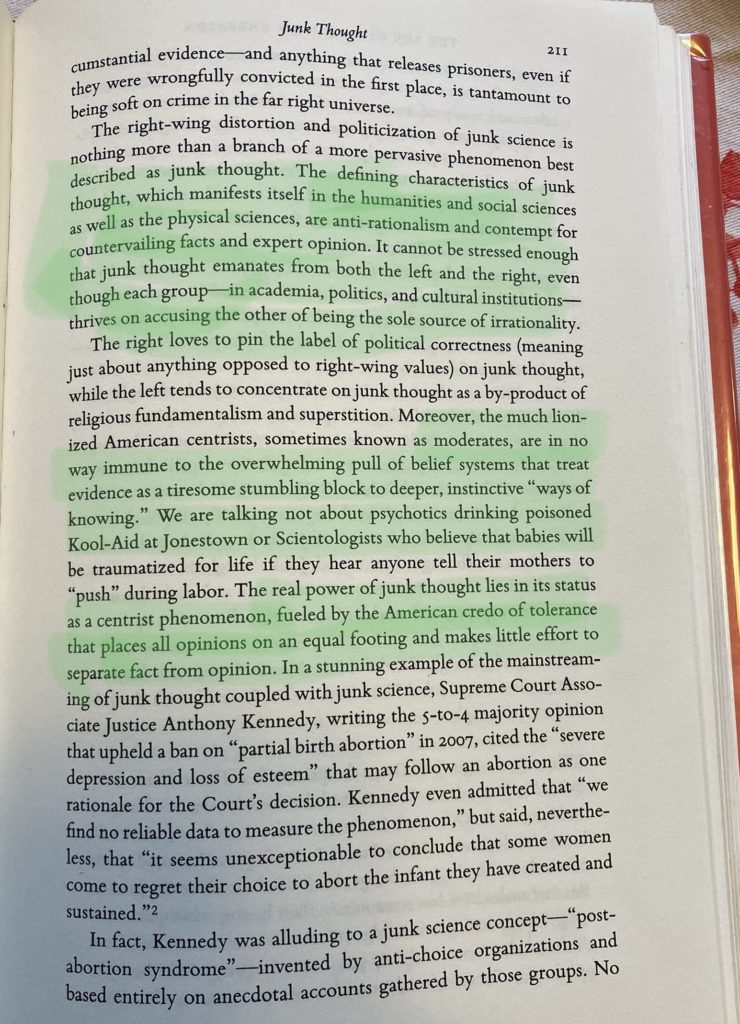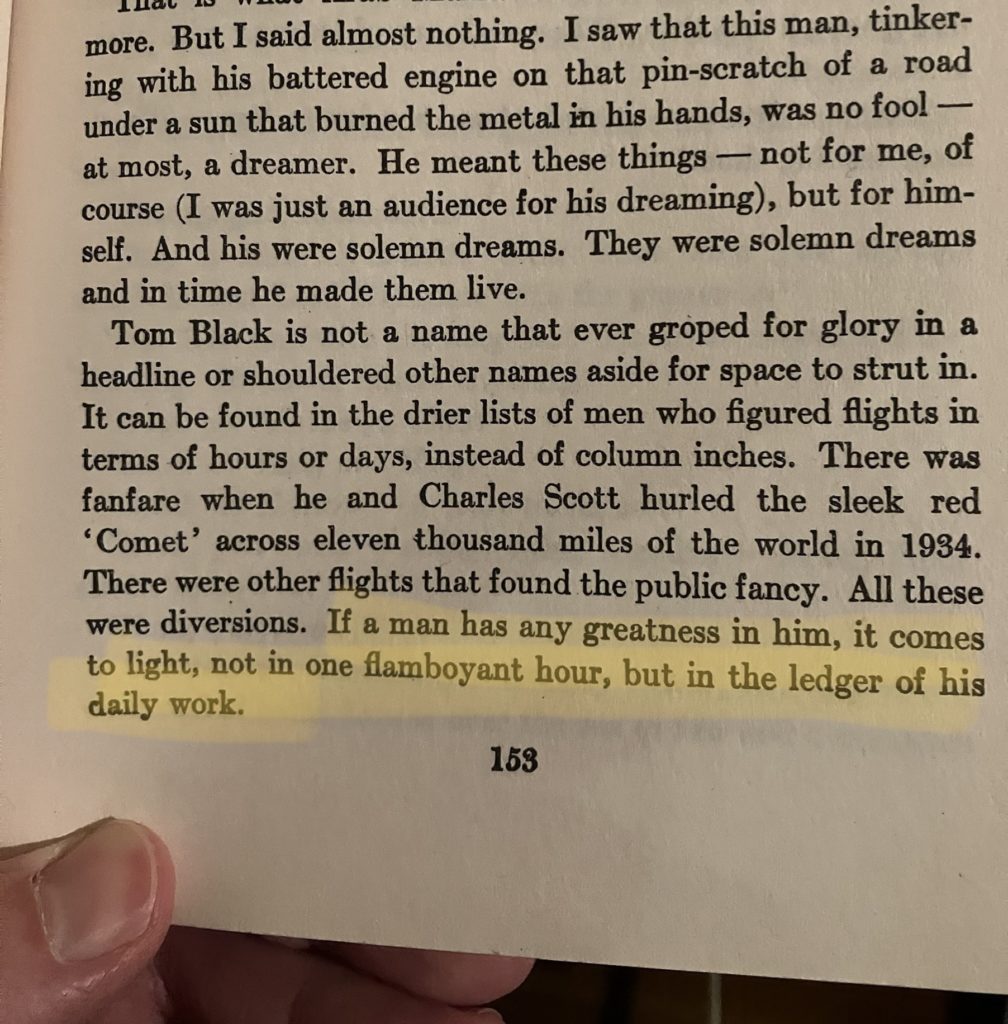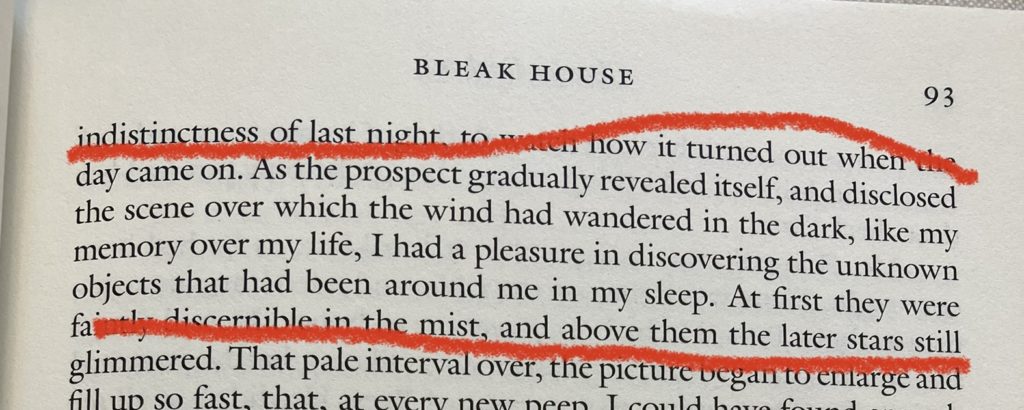
from The Age of American Unreason (pg 243)

The oldest and most obscure weblog. Probably. Lovingly maintained and neglected by Shawn Kilburn.


I like to say, as a moderate centrist, that everyone dislikes me just a little bit.

Social Darwinism sure has “trickled down”….

Seem familiar…?
Increasingly, I think when people are thinking of the metaverse or a mertaverse, they’re fixating on the wrong thing. There’s this funny notion that we need to recreate three dimensional space in a shared virtual online world.
In a sense, the metaverse is already here. It’s just a jumble of mobile apps, web sites, email, text messages, and anything else you can think of. I think that we don’t think of this as “the metaverse” because it’s what we’re used to. It doesn’t have the whizbang quality that we imagine from a science fictional universe. On rereading William Gibson’s Neuromancer trilogy recently, what struck me is how little people are wowed by any of the technology in it. It’s almost dull and blasé. It’s easy not to notice the water when we’re fish swimming in it.
The cyberpunk idea of the metaverse is trapped in the idea of mainframe computing. The idea that computers would be small enough that you would just carry them around in your pocket wasn’t something that occurred to those science fiction writers from the 80s. Even the 1999 movie The Matrix is trapped by this idea of thin terminals connecting to a centralized computing hub. What are Twitter and Facebook and all these other social media sites, but expressions of this same basic idea.
But our experience of our collective internet (which I think we need a better name for than metaverse… perhaps, noosphere?) is one of portable handheld devices and notifications and lots and lots of text. The podcaster Blindboy described Twitter as a massively multiplayer online roleplaying game (MMORPG) and I think that’s exactly right. We’re all playing in a metaverse already, whether we’re on one of the big social media sites or not.
Back in the early days of the internet, this would be the early 90s, I got my hands on internet access and joined my friends on a text-based roleplaying (not game) server called LambdaMOO. I don’t think I’ve ever experienced anything quite as thrilling as hanging out with my friends in this weird textual universe. The amazing thing about it was that I could change what I looked like, what my house looked like, how different things behaved, simply by typing words. I was pretty much only limited by my imagination and the time I was willing to put into typing out words.
As a compulsive reader, I understand the power of words to throw a person into another place. Through the power of my brain, I can enter into a virtual reality whenever I pick up a book. As I’ve been noodling around with various AI art and text generators lately, I think there’s an obvious opportunity here to create a text-based multiverse using (at the very least) AI text generators plus whatever creative juice lots of human beings can summon up.
Like a wizard, I imagine casting some spells to summon some AI creation to raise a tower from the ground. Then I can invite all of my friends to hang out there. Like a MySpace page, I can make it as cool or as janky as I like. Why not throw a music player in there? I feel like there’s a real opportunity to make something lo-fi and compelling that inspires the kind of creative noodling that’s available to anyone who can type some words on a keyboard.
In Xanadu did Kubla Khan
A stately pleasure-dome decree:
Where Alph, the sacred river, ran
Through caverns measureless to man
Down to a sunless sea.
So twice five miles of fertile ground
With walls and towers were girdled round;
And there were gardens bright with sinuous rills,
Where blossomed many an incense-bearing tree;
And here were forests ancient as the hills,
Enfolding sunny spots of greenery.
“Kubla Khan”, Samuel Taylor Coleridge
I’m pretty sure there’s nothing in a painfully hidebound 3D virtual reality space that’s going to conjure up as vivid a picture or as much emotional resonance as part of this poem from Coleridge, for example. I think we’ve been underestimating the great power of language. And it’s been hiding under our noses this whole time.
I’m not technically savvy enough to even know how to begin making some kind of textual metaverse (I say textual, but there’s no reason it couldn’t have images and video and a whole mess of other things, too), but it seems like an idea worth throwing into the void.

Still true. It’s wild to imagine all the maps disappearing.

It’s funny how much I think of myself as not actually reading that much (I do a lot of other stuff, too) but when I sit down to write them all down, it starts to seem like a pretty large number.
Night Heron by Adam Brookes: A solid spy/thriller set in China. Tense and exciting. I wasn’t sure where this one was going to end up. I’m always a little skeptical of books about China written by Westerners, so definitely take this one with a grain of salt.
The Midnight Library by Matt Haig: I almost certainly read this one because it had the word "library" in the title. I’m wracking my brain trying to remember a thing about it. (I read a synopsis about it.) Oh yeah, I quite liked this story about a woman living different lives, in a multiverse kind of way. Clearly inspired by Borges’ "Library of Babel" story. I don’t know why it didn’t stick with me, even though I enjoyed reading it.
Termination Shock by Neal Stephenson: My biggest problem with Stephenson’s books is that I lose too much sleep to them. I enjoyed this one more than any of his books since the Baroque Cycle. I’m sure that Stephenson’s info dump style of writing isn’t for everyone, but of you’ve enjoyed any of his other books, you’re almost certain to enjoy this one too.
The Dragon’s Path (Dagger and Coin, book 1) by Daniel Abraham: I set out to read the first of The Expanse series, but instead I somehow ended up reading this fantasy story instead. It’s got that epic fantasy flavor, but it’s more about trade and diplomacy than war and fighting monsters. I liked the sedate vibe of this book. Characters who are good at what they do or discovering what they’re good at, struggling to succeed against pretty steep odds.
By Night in Chile by Roberto Bolaño: Read this for a book club. This is a solid intro to Bolaño, because it isn’t many hundreds of pages long. The story of a Catholic priest’s slide into corruption leading up to Pinochet’s coup and after. Dark, dark stuff. Not a pleasant read, but a pretty eye-opening one.
Desperate Characters by Paula Fox: Another one that I have pretty hazy memories of… Ah, yes. An unhappy married couple have an unpleasant weekend together. The cat (who bites the wife) is the most vibrant character in this book. It’s not quite an anti-marriage novel, but I can’t imagine someone wanting to rush off and get married after reading it. Pretty mesmerizing stuff, even though it whooshed out of my head pretty quick after finishing it.
The Return of the Soldier by Rebecca West: West’s book Black Lamb and Grey Falcon is one of my favorite books, so I was delighted and surprised when this short book turned up in my free library box. An emotionally fraught book about a solider returning from war and having no memory of his wife. Very odd.
The Guns of August by Barbara W. Tuchman: The story of the first month of WWI. Powerful stuff about how (probably?) smart and capable people can think themselves into catastrophe when given enough power and opportunity. Things that stood out: I had forgotten (or never knew) just how close Germany came to winning the whole thing in the first month; the English were completely hapless and almost entirely useless in the first month of the war; people were terrified of Russia’s army, but when they got into combat they proved to be a paper tiger.
Drown by Junot Diaz: A collection of short stories. Once I looked up the titles of the stories, I remembered them. "Edison, New Jersey" and "Negocios" were the ones that stood out for me.
Foundation by Isaac Asimov: I read this when I was a kid and, after watching the recent tv series, I was curious to reread it. I had forgotten how much it feels like a set of short stories. I think it holds up pretty well though. The adaptation has a very different vibe. The book has an almost jovial quality to it that the adaptation is completely lacking. It was fun to reread it.
It’s funny how I seem to read books faster than I can easily keep track of them here, but even while reading them seems to take longer than it should.
Lau Tzu: Tao Te Ching: A Book about the Way and the Power of the Way by Ursula Le Guin: Not so much a translation as a transliteration, I guess. Le Guin read several translations of the Tao Te Ching and used that to her craft her own version. Very poetic and worthwhile. Her forward (or afterward) to The Lathe of Heaven inspired me to read this.
Artificial Condition, Rogue Protocol, *Exit Strategy, Network Effect and Fugitive Telemetry by Martha Wells: Books 2, 3, 4, 5, and 6 of the Murderbot series. Sometimes it’s lovely to finish a book in one sitting. I read all of these on individual weekend afternoons. The plots blur together a little bit in my mind, but, in general, a satisfying SF series that noodles around with questions of what it means to be human.
Shady Characters: the Secret Life of Punctuation, Symbols & Other Typographical Marks by Keith Huston: A lot of fun historical tidbits in this book about the history of writing and printing. Granted, I’m the target audience for this book, but I think pretty much anyone would find something enjoyable in it. One of those books where I imagine you could read any chapter on its own.
All of the Marvels: a Journey to the Ends of the Biggest Story Ever Told by Douglas Wolk: This guy read all of Marvel’s comics (so you don’t have to) and wrote a book about the experience. Amazing! He has a lot of great insights about Marvel from reading decades of their comics as well as some useful thoughts on how to tackle incredibly large projects.
The Master of Go by Yasunari Kawabata: Journalism as novel. I don’t know much about the game of go, but I was entranced by the writing in this book and the story of a man who was playing his last go tournament after devoting his entire life to the game. A bit heart-breaking too.
The Last Emperor by John Scalzi: The last in the trilogy. This series is sort of epic, imperial science fiction-lite. I could easily imagine a version of this story that spans seven 700-page books. A good reminder that you can tell a pretty complex and interesting story with far fewer words.
Nocilla Experience by Agustín Fernández Mallo: An experimental novel. I don’t remember much about it. I may have lost some of the patience I had when I was younger for this type of book. Still, pretty short and I read it in an afternoon, which I always enjoy.
Slaves of New York by Tama Janowitz: Stories of terrible people in 1980s NYC. Sort of funny, in a mean way.
King Bullet by Richard Kadrey: The last in the Sandman Slim series. I enjoyed this supernatural noir series, but I think Kadrey was definitely getting tired of writing books in this series. It’s short and there’s not much to it, but if you’ve gone on the whole ride, it’s a worthwhile wrap up. Funny, for a series that I think you can read piecemeal.
